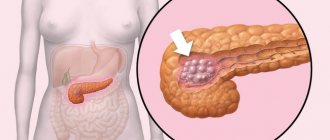Most people who have tried to change their figure know that the process of losing weight can be difficult and lengthy. However, while losing extra pounds is quite possible, maintaining the result is much more difficult. This is primarily due to the launch of a number of adaptive mechanisms in the body, which are aimed at minimizing weight loss.
This article does not try to attribute everything to physiology and genetics and downplay the role of personal involvement in the process, motivation to achieve results and the desire to maintain them. Rather, understanding the processes and genetic component of excess weight will help not to give up when faced with difficulties that can be explained by the physiology of the processes and, perhaps, will be able to debunk the prejudice that extra pounds are solely a consequence of overeating and incontinence in nutrition.
| Our goal is to lead to maximum understanding of all the processes occurring in our body, because only in this way will the changes become long-term, and the path to them and leading a healthy lifestyle will be conscious. |
Metabolism
Every living organism requires energy to perform daily functions aimed at survival. Body weight is determined by energy intake and expenditure, and any imbalance leads to weight fluctuations.
The efficiency of this metabolism depends on how productively existing or available energy is used to maintain basic metabolism, and how effectively energy is extracted and absorbed from food .
This indicator is individual for each person. This fact is counterintuitive, but generally a person with an efficient metabolism will be prone to gaining weight. Why? Because it efficiently extracts energy from food, uses it sparingly for daily functions, and stores excess energy very efficiently. This is probably the only case when you really don’t want to be so effective.
Who is an example of an inefficient metabolism? People of thin build, for whom everything happens the other way around: energy is not extracted from food so well, and a lot of it is required to function - accordingly, little remains in the black.
The physiology of efficiency is very logical in the context of evolution, since such a metabolism helps to survive during long periods of hunger and quickly stock up during periods of abundance. But when a person is in abundance all the time, this is where problems arise.
What is the plateau effect when losing weight?
The plateau effect when losing weight is a phenomenon in which the scales either freeze in place or even indicate weight gain. At first, with a competent and purposeful approach, body weight decreases relatively quickly. Then the kilograms begin to melt away more and more slowly. It would seem that this is not a problem, but there comes a time when, with the same efforts - dietary and sports - all attempts to break through the ceiling seem unsuccessful. Even worse, you intensify your attack on fat, but the weight begins to increase. Many people, faced with an unpleasant effect, become disappointed in diets and exercise, lose motivation and capitulate. Usually, the more motivated a person is at the start, the greater the disappointment.
Giving up the fight is the wrong decision. There are ways to break through stagnation. When faced with a problem, you need to understand its causes and develop a strategy to get out of the stagnant situation. But the plateau also has a positive connotation. During periods of stagnation, the body records the achieved result. Thanks to the body's adaptation to certain conditions, after finishing the diet it is more difficult to gain excess weight again. It is only important to be able to adapt to such phenomena and get out of the situation to your advantage.
The tendency to gain weight as a genetic component
Undoubtedly, lifestyle (sedentary or active) affects weight, but a considerable amount of research indicates that genetics may also be a reason for the tendency to gain extra pounds. In rare cases, it all comes down to changes in just one single gene associated with regulating feelings of satiety and hunger. Many studies (mostly conducted on twins) have clearly shown the importance of genetic factors in weight gain.
For example, a study on the relationship between weight gain and environment conducted with adopted twins found that the weight of adoptive parents and children may differ significantly, while a direct relationship was observed between the weight of children and their biological parents. Another study, also conducted on twins, showed that if several pairs of twins are fed the same food for 3 months, then the weight gain between brothers or sisters will be almost the same, and between pairs there can be a huge spread of two to ten kilograms. Similar results were found in weight loss studies.
There is also a body of evidence for differences in basal metabolism between people from different ethnic groups, which further demonstrates the importance of genetics in weight gain, loss and maintenance.
Body weight is controlled by a myriad of metabolic pathways and feedback circuits, coordinated at the molecular and hormonal level.
The amount of food consumed is regulated by the central nervous system through a series of interconnected neuroendocrine feedback loops. Energy expenditure is regulated by the autonomic nervous system and a number of hormones, the most important of which are thyroid hormones. But hormones such as insulin, leptin, ghrelin and many others also play an important role in the process.
| The scientific literature has documented many examples of successful weight loss, but the main problem is that most people are unable to maintain their new weight in the long term. |
Plateau in geography
Flat and elevated areas of the earth's surface were formed in different ways. Some were formed by long-term erosion of mountains, others were once sections of the seabed that were then uplifted.
- The Deccan Plateau, for example, was formed from volcanic lava.
- The plateau in Utah, located at an altitude of 1300 - 1400 m above sea level, was before Ancient Lake Bonneville.
- In the central Andes there are two large plateaus, the length of which exceeds 1800 km, they were formed by thickening of the earth's crust, they are called Puno and Altiplano.
- The coldest place on Earth is the Polar Plateau - land around the South Pole, 3000 km above sea level.
"Set point"
One possible explanation is the “set point” theory: a “weight set point” is the weight range within which all body systems function optimally. According to this concept, weight is regulated at a given value and the body resists a strong deviation from this value. The hypothesis about the presence of a certain weight constant has been promoted for many years, and over the years of research it has been confirmed by a large number of experimental results.
| First, the weight of all mammals, including humans, fluctuates in response to overeating or underfeeding and usually returns to its original level when normal eating patterns are restored. |
| Secondly, metabolism changes significantly when you gain or lose weight. |
So, when people gained 10% of their initial weight, as expected, there was an increase in energy expenditure, but the most interesting thing is that it was not the basic metabolism that changed, but the energy requirement of skeletal muscles. That is, one of the mechanisms to prevent further weight gain was an increase in energy consumption. Similar observations were made with weight loss, i.e. energy expenditure dropped significantly to prevent further weight loss.
These mechanisms fully explain why it is difficult for people to lose “the last couple of kilograms” and why the weight is so easily gained again if you return to your previous diet, because now the body is more economical in its needs. At this stage, the duration of reduced energy requirements after weight loss is unclear, but there is evidence of normalization of metabolism and restoration of its original level.
How long can the weight loss plateau effect last?
The duration of stagnation varies from 2-3 weeks to 1-2 months. The average duration of the effect is a couple of weeks. Sometimes the period may drag on and exceed the specified ceiling.
The duration depends on the cause of the phenomenon and on how competent the measures are to get out of the plateau. In some cases, it is enough to adjust your diet slightly to see changes. In others, you have to adapt to the body’s decision and wait much longer. In any case, there is a way out of the situation. The stupidest reaction to stagnation is to give up. By focusing your efforts on solving the problem, you will definitely get out of the deadlock sooner or later. Next - how to overcome the plateau effect.
Hormones and their effect on weight
In addition to slowing your metabolism, weight loss is associated with increased appetite. After eating, satiety signals from the gastrointestinal tract reach the brain. Various mechano- and chemoreceptors in the intestines detect the presence of nutrients and release a series of hormones. All of these hormones regulate satiety (when to stop eating), satiety (lack of hunger between meals) and hunger. But this is only physiological regulation of energy balance.
| There is also hedonic regulation, which is based on the attractiveness of food and pleasure. This system is able to stimulate food intake even in the absence of energy needs. |
Many people who have lost weight notice a more pronounced desire to eat between meals, a sharper feeling of hunger, and an increase in the amount of food eaten. Physiologically, these processes are attributed to increased levels of cortisol (stress hormone).
Another hormone that can affect weight retention is ghrelin . This hormone is secreted by the walls of the stomach and pancreas. Its levels rise before eating, causing hunger, and fall during and after eating, causing a feeling of fullness. Moreover, experiments have shown that constantly elevated levels of this hormone lead to a slowdown in metabolism and stimulation of the deposition of fat reserves.
| Thus, increased ghrelin levels in the period after weight loss can lead to the opposite effect - weight gain through increased appetite and slower metabolism. |
leptin is also an important player and is produced by adipose tissue. With weight loss, its level in the blood drops, which stimulates hunger and an increased need for energy.
It would seem that all these physiological, hormonal changes are the sole culprits in weight gain, and some studies indicate this, however, many others do not trace a direct connection. Of course, decreased leptin levels and increased ghrelin levels can be harbingers of such an outcome, but this, again, is not clear.
| Proper weight loss is a long and demanding process, the most important factor of which is changes in habits. |
Changes in approach to nutrition and physical activity are an integral part of the process and are what contribute to successful weight loss and maintenance of the achieved results in the long term.
Many studies that are based on monitoring people in the maintenance phase, that is, after weight loss, indicate a number of important rules:
- change the composition of macronutrients (especially their protein component);
- Choose a filling breakfast that contains complex carbohydrates or complex carbohydrates and protein;
- move;
- avoid low-calorie diets - the body will compensate for everything in the future and will not allow you to maintain weight;
- watch for changes - it doesn't have to be a scale or a centimeter, but pay attention to changes in your parameters.
| A number of studies show that all people who have managed to lose weight and maintain their new shape have a number of similarities, the first of which is an active (moving) lifestyle. |
Despite thousands of ongoing studies of the physiological component of weight loss, nutritionists and scientists are beginning to agree on one thing - it is necessary to change habits, eat consciously and monitor changes. To a large extent, everything is related to lifestyle, although physiology cannot be ignored.
Plateau phenomenon. Comment by Elena Degtyar
One of the most important goals of this article is to try to explore the plateau phenomenon that almost all people with a high BMI experience when trying to lose weight. Very often, maximum weight loss is achieved by six months of the diet, and after that the weight is either maintained or begins to creep back up. Unfortunately, there are no detailed descriptions of this phenomenon in the scientific literature.
Searching among popular and respected resources on the international Internet network, I personally was very surprised, because it all often came down to the following:
- Most likely, people themselves are to blame for this, because they stop adhering to the regime;
- they think they are making an effort, but in reality they are not working hard enough;
- Those losing weight who are faced with a plateau are asked to cut the calorie content of their diet even more (without falling below 1200 kcal). If a person has been eating in this range for a long period of time, then it turns out that everything is lost.
- They try to convince those who are losing weight that, most likely, they have inflated expectations and, perhaps, they are already at their ideal weight, without knowing it.
However, experience and communication with people show that often all the rules are followed and there are extra pounds, but the weight is worth it. Having dug deeper, I still managed to find some advice that was consistent with my personal opinion regarding this situation.
Often, those who are trying to lose weight build a clear, specific system of nutrition and training. At first, this system gives results and, inspired, the person continues to follow the chosen direction, fearing to deviate from the established scheme.
But the most beautiful and at the same time annoying quality of the body is its ability to adapt.
The body can adapt to altitude by producing more red blood cells; to physical activity, starting to build muscles; to a small amount of energy, cutting costs to a minimum and strictly conserving reserves.
| Having driven oneself into certain limits, especially those that imply restrictions and stress, a person will be stressed. |
Therefore, the first thing you need to do when you see that progress has stopped is to relax and understand that this is normal. Moreover, it is even wonderful, because you know that you have undergone dramatic changes and your efforts were not in vain. In this situation, it is advisable to continue to adhere to the chosen regime for some time and see what happens. Are there any changes in sensations? What's going on emotionally?
Nutritionists and scientists rarely pay attention to the emotional background, and since the plateau phenomenon is not studied at all, then to the emotions of a person whose efforts are now being wasted, as he believes, even more so. However, experience shows that often in a plateau state a person begins to experience fear or despair. Fear, because it is not clear what to do now to restart the system, and despair, the desire to give up everything, because if the efforts are in vain, then you can give up the whole idea.
But you shouldn't throw anything away. On the contrary, you need to be patient and perceive the situation as a quest. Imagine that you need to get out of a locked room by collecting the required number of clues and finding the key to the door.
Exercise stress
Try to figure out if you have overtrained. Rest is an important component of progress.
| Regular intense physical activity is a certain kind of stress for the body from both a physiological and psychological point of view. In professional athletes, symptoms of overtraining manifest themselves in changes in hormonal levels in the blood and general fatigue. |
You may not be a professional athlete, but it is clear that prolonged effort at a high level of functionality in other areas of life leads to fatigue.
So make sure you get enough rest. If you feel that you have found a balance between exercise and rest, then just try changing the type of physical activity.
What can be changed? For example, if you've been going to the gym and focusing on strength, start running or doing some other cardio exercise.
If you've been balancing between cardio and strength training, try yoga, callanetics, Pilates or stretching. Start doing short interval training or choose more challenging exercises, focusing on technique and effort rather than length of workout. The amount of scientific literature confirming the high effectiveness of interval training is only growing.
Nutrition
Don’t immediately think that you now need to eat even less and start looking for an even lower-calorie diet.
Yes, your body has adapted to your diet. You have lost weight, you now need less energy than at the beginning of your journey. But this does not mean that it is necessary to remove something and cut down the diet even more. If you carefully read the article, you could see that adaptation occurs not only in this vein: “less weight - less energy expenditure,” but also in the regulation of metabolism and its efficiency. Also, if you read an article about the physiology of weight loss, then you know that along with fat, the body loses muscle mass, and these are the tissues that are usually the most demanding in terms of energy consumption. So in the case of a plateau, you have three very interesting possibilities:
| 1. Set up an energetic swing. Eat a couple of days more than usual, and then one day less than usual, then again more and again less. Thus, by maintaining energy balance over a week or month, but varying it from day to day, you can take the body out of its usual function and cause it to “lose” its metabolism. 2. Try changing your diet. If you have been eating 3 times a day so far, reduce your portions, but eat 5 times a day. Or focus on your main daily caloric intake in the first half of the day and reduce the amount of food in the second half. 3. Play with your macronutrient spread. Increase the amount of protein at the expense of fats or fats at the expense of carbohydrates, try to shift the usual alignment so that the body begins to launch mechanisms for using alternative fuel. |
Don't be afraid to experiment! A plateau is a kind of stagnation, stagnation, and in order to re-enter the path of progress, a shake-up is needed. But a shake-up does not mean less food, more exercise, and fears and stress for dessert. No! This means research and change, which means new discoveries and new progress.
Author: Elena Degtyar, PhD, head of the scientific department #SEKTA
Literature:
1. Anastasiou CA, Karfopoulou E., Yannakoulia M (2015) Weight regaining: From statistics and behaviors to physiology and metabolism Metabolism, clinical and experimental [0026-0495, 1532-8600], yr: 2015 vol: 64 iss:11 pg:1395-407 2. Harrold JA TM Dovey, JE Blundell, JC Halford CNS regulation of appetite Neuropharmacology, 63 (2012), pp. 3–17 3. Greenway FL. (2015) Physiological adaptations to weight loss and factors favoring weight regain International Journal of Obesity 39, 1188–1196 4. Urhausen A., Gabriel H., Kindermann W. (1995) Blood Hormones as Markers of Training Stress and Overtraining Sports Medicine 20 (4) 251-276











